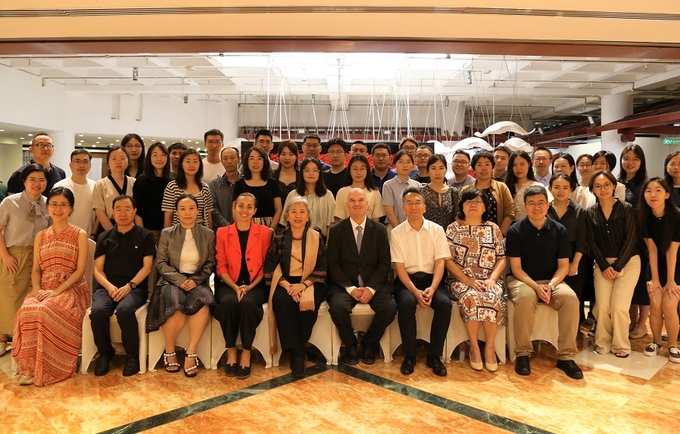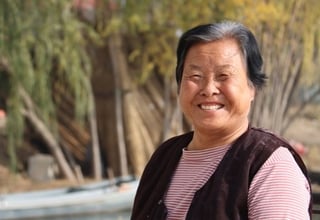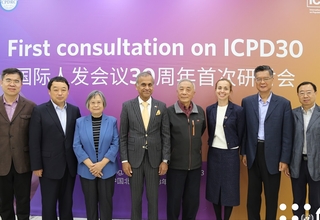BEIJING, China, 26 July 2023 – The United Nations Population Fund (UNFPA) in China and the United Nations Department of Economic and Social Affairs (UN DESA) are launching a National Transfer Accounts (NTA) initiative in Beijing today.
It is part of the UNFPA and the National Development and Reform Commission (NDRC) of China cooperation in developing innovative approaches on strengthening national policy planning on population and development, particularly population ageing.
NTA is a way to measure economic activities by age. It is useful to understand the implications of changing population structures for the national socio-economic development, and to balance the support for different age groups, including children, young people and older persons.
"NTA links population and economy. It goes beyond the gross domestic product, to measure every aspect of the generational economy, including unpaid care borne mainly by women. By doing this, we strive to include everyone in the building of an inclusive and sustainable society for all,”says Mr. Tim Miller, the Global Advisor on Population and Development of UN DESA.
Linked with UNFPA’s life-cycle approach to population ageing, NTA focuses on both the public and private transfers to respond to the evolving consumption needs over a person’s different age stages, such as education, health, and pensions. It also helps in addressing the inequality within and between generations, to ensure that no one is left behind.
The population structure in China is undergoing profound changes. Estimates suggest that by 2050, there will be 516 million older persons aged 60 and above, or every two out of five people in China will be older persons. Compounded by sustained low fertility, population ageing will have numerous economic consequences, presenting both opportunities and challenges for development and for policy making.
To address the evolving needs of different generations and achieve a robust economy, a systematic and comprehensive review of the income, consumption, and economic flows from a generational perspective will be required, covering the government, market, and household.
"UNFPA China looks forward to working with our counterparts on future NTA activities, particularly conducting NTA analysis and using the new evidence and insights for policy development to support better national response to population ageing in China," says Ms. Ira Ovesen, Deputy Representative of UNFPA in China at the opening.
Some 50 participants from the NDRC, National Bureau of Statistics, China Population and Development Research Center, China Research Center on Ageing, and universities and institutions across China, as well as the UN agencies in China participated in the event.
For more information please contact:
- Shujun Liu, Communications Analyst, UNFPA China, sliu@unfpa.org.




